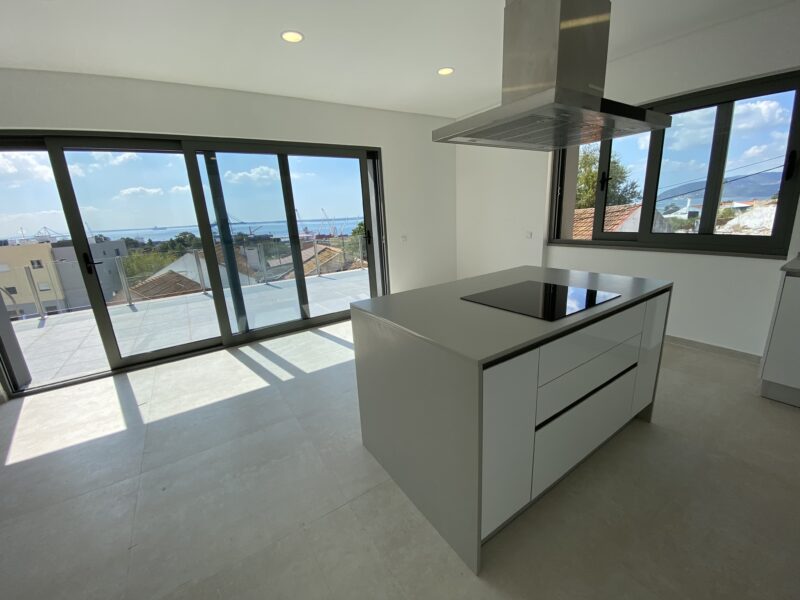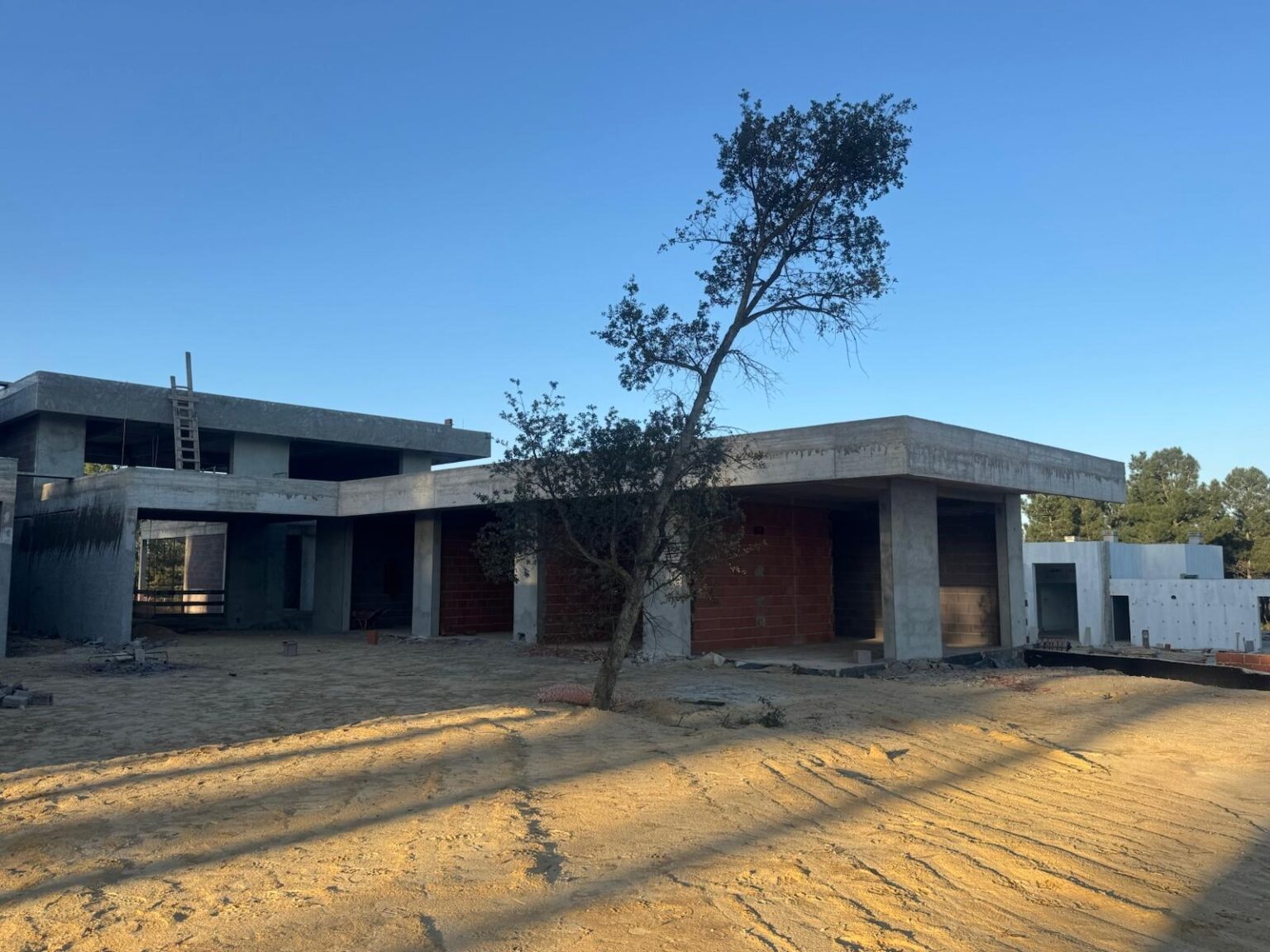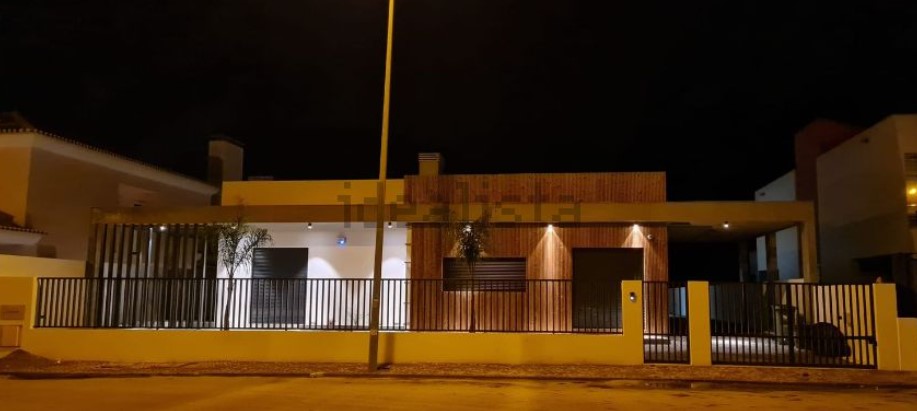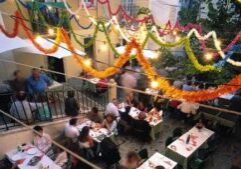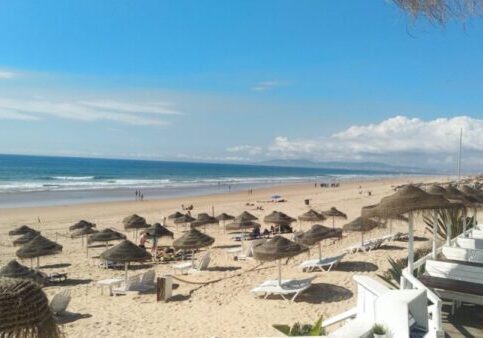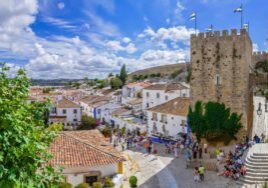Living in Portugal: 7 changes in your daily life
![]()
When you travel or move to a new place, all your senses are on alert. Living in Portugal means discovering a whole host of things in a short space of time. Some things will seem “normal”, others will strike you as unusual, but don’t worry, they’ll quickly become part of your daily life. These first steps in Portugal will be ingrained in you and will define the beginning of your experience.
I’ve lived in many countries, and for every place I’ve been, I have these little things in mind. I’m going to try to share with you some of the “basics” of life in Portugal, the little things I wasn’t used to before and which I now say to myself: “ah yes, I’d never seen that before living in Portugal” or “that reminds me of Portugal!”. And if you want even more, I invite you to read my previous article: Portuguese life: 30 little things from everyday life in Portugal.
1. The border: your first steps in Portugal
You’ll start to familiarize yourself with Portugal as soon as you take your first steps in the country(jeparleausenspropre), and it’s often these steps that we remember most and that become our “Madeleine de Proust”.
So, for many of you, your first encounter with Portugal will be at the Spanish-Portuguese border, and this first approach will undoubtedly awaken two of your senses: smell and taste(by the way, if you’d like some feedback on the France-Portugal car journey, I suggest you read this article by Virginie).
The sense of smell, because of the unique scent of eucalyptus that invades you as soon as you open the doors of your car in Portugal. When I smell it, I always think of Portugal. Just as I associate the smell of jasmine with Seville. Perfumes have the power to associate themselves with moments, places… in our lives, and I love that! Don’t you love it?
Taste is the second sense that you’ll quickly use as soon as you arrive in Portugal, thanks to an action that has almost become a tradition for many people making this journey: wolfing down a bifana at the border(and a small Sagres or SuperBock for those who need to quench their thirst, of course). A simple sandwich: marinated meat and bread, but one that leaves no one indifferent! The famous bifana on the Spanish-Portuguese border, especially in the village of Vilar Formoso, is a must-try and will awaken your taste buds after a long journey. If you haven’t yet acquired this little habit, I recommend it: after a long journey, a good bifana is still the best! Next time, don’t hesitate to share a small photo of your bifana at the border and post it on the Facebook group “Amoureux du Portugal”, I’m sure many members will envy you 😉
The Bifana.
2. Living in Portugal: living with pasteis de nata
Even if you don’t know much about Portugal, you’re probably familiar with Pastel de Nata, the deliciously flaky pastry found all over the country. Although we’re all familiar with this pastry(at least by name), many French speakers make a small mistake when talking about it. If you move to Portugal, you can no longer make this mistake! So I often hear people say: “I ate a really good pastéis de nata! No, you didn’t! If there’s only one, we say “pastel”(singular), pronounced “pachtél”, and if there’s more than one, we say “pastéis”(plural), pronounced “pasteiche”. That said, I think you’re now ready to live in Portugal 🙂
Your daily life in Portugal will therefore be punctuated, in part, by this little flan, the smell of which I’m inhaling as I write this in the pastelaria near my home. It’s worth noting that the latter can quickly become an addiction if you live in Portugal. Whereas in France, the croissant is king of the bakery, in Portugal, the pastel de nata is king. If you’re a gourmand, like me, you won’t be able to get enough of this delicacy, and you’ll start comparing them all, a bit like Cyril Lignac in an episode of “Le Meilleur Pâtissier ” on M6. From my extensive experience as a “pastéis de nata tester”, I can tell you that the puff pastry is one of the major criteria for determining the success or failure of a pastel. The ultimate test of a pastry’s quality is whether it makes a “crrrrr” sound when you bite into it, you know what I mean? And don’t forget to tell me in the comments which pastelaria you find your favorite pastéis de nata in? Personally, I’d like to share my three favorite pastelaria with you:
- the“Pastéis de Belém“, in Lisbon’s Belém district,
- the“Manteigaria“, in Lisbon’s Bairro Alto district,
- The “Leitaria“, between Marquês Pombal and the Amoreiras in Lisbon.
Pastéis de Belém.
3. Language: my little tip
One of the first things you’ll do when you move to Portugal is to learn Portuguese! Even though in the Portuguese capital you’ll hear almost more of Molière’s language than Pessoa’s on the streets, don’t let that stop you from learning Portuguese, and it will be a great help to you as you take your first steps in Portugal. Living in another country means integrating, and that means learning the language of the country in question. It won’t be easy at first, and will require motivation, perseverance, learning, time and a little money for lessons, but you’ll get there!
I’d like to take this opportunity to give you a little “tip ” that may help you in the beginning. For words ending in “tion” in French, replace this ending with “ão” pronounced “aon”. Chances are, it’ll work… or not 😉 Here are a few examples:
- Alimentation = alimentação
- Definition = définição
- Affirmation = affirmação
- Dwelling = habitação
- Cessation = cessação
- Decoration = decoração
- Direction = direção
- Illustration = ilustração
- Etc.
4. Portugal’s roads: on foot or by car, what you’ll notice
In France, motorists are now penalized 6 points if they fail to let pedestrians pass on a crosswalk. But in Portugal, that’s not likely to happen. As soon as I arrived, I was very surprised by the courtesy of Portuguese motorists towards pedestrians. Although motorists in Portugal have certain shortcomings, on the whole they pay attention to pedestrians and let them pass at dedicated crossings.
Portuguese speed limits are a little different from those in France. The speed limits are 120km/h on freeways, 100km/h on expressways, 50km/h in built-up areas and 90km/h outside built-up areas. To be honest, these speed limits are rarely respected. Although recently, the arrival of point-based driving licenses and fixed speed cameras, which didn’t exist in Portugal before, has somewhat limited the Portuguese’s desire to “step on the gas”.
Finally, another thing you’ll notice when living in Portugal is the presence of huge stork nests on the electricity poles lining the roads and freeways. I’m thinking in particular of the freeway around Aveiro(north-central Portugal) and the one around Montijo(Lisbon region). Keep your eyes peeled as you drive by 😉
Storks on electricity poles .
5. Gastronomy: do you like starchy foods?
Obviously, cuisine is always one of the first relationships we have with a new country, so Portuguese cuisine is bound to be part of your first steps in Portugal. Portuguese cuisine is delicious, and I’ve already told you about it hundreds of times. In fact, I praise it in my article on gastronomy. However, when I arrived in Portugal, one thing in particular caught my attention about the country’s cuisine.
Although Portugal abounds in sun-drenched fruit and delicious vegetables, you’ll find that in the majority of typical Portuguese dishes, vegetables are quite rare. Indeed, you’ll quickly notice that the main accompaniments are potatoes(oftenboiledorfried) and rice. And when I say “rice and French fries”, it’s not one or the other that you’ll see on your plate, but both!
Starchy foods are therefore at the heart of Portuguese dishes. I should point out, however, that in restaurants, waiters are very accommodating and it’s easy to change side dishes if you wish, but on the whole, starchy foods are very much a part of the Portuguese diet.
Frango Churrasco (grilled chicken) with French fries and rice (for 1 pers).
6. Being a woman in Portugal: cared for from head to toe
Ladies, these few lines are for you. If I say: hairdresser, waxing, manicure, etc., you’re obviously talking! But, as we all agree, it’s always a bit of a hassle to schedule appointments at the hairdresser’s, then the beautician’s, then the nail salon, and so on.
When I arrived in Portugal, three things surprised me about the beauty scene here. Firstly, Portuguese women take great care of themselves, and salons are often full. Whereas in France, we tend to do certain “aesthetic tasks” at home, Portuguese women leave this to the professionals. On the other hand, the prices of services are quite low(well, I say that but I also remind you that the SMIC is low, so it remains proportional). Finally, and ingeniously, in Portugal you can do it all in one place. All beauty services – manicure, massage, waxing, hairdressing, treatments, etc. – merge in one place, making it much easier for you to get organized. You don’t have to run back and forth anymore, you can do it all in one place. But don’t forget to make an appointment, because as I said, the salons are often packed, and Portuguese women like to take care of themselves right down to the tips of their fingernails.
7. Parking: be careful!
If you decide to have a car in a big city in Portugal, you’ll quickly notice two things about parking. On the one hand, parking spaces are scarce, and on the other, don’t play too much with parking times – you risk losing out(I stress that I’m talking about big cities, because in small towns, the rules are much freer, shall we say).
In Portugal’s big cities, for example, if you have a car, you should be aware that checks are very frequent. If you exceed the time limit on your ticket, you risk a fine and maybe even having your wheel blocked with a shoe if they judge that you’ve exceeded the time limit on your ticket too much(between 60€ and 90€ to have the shoe removed by EMEL, whose number I’ll give you below, it might come in handy: 351 218 808 131). You can feel that I’m speaking from experience, can’t you?!? 😉
Worse still, if you don’t put in a ticket, you risk the impound lot that regularly passes through towns and cities. (In Portugal, gentlemen often show you free spaces in exchange for a coin. Giving pennies to the gentleman who helps you park doesn’t mean you don’t have to put pennies in the parking meter)
Another thing to look out for when parking in Portugal is “reserved” spaces. There are many of them, some for residents, others for embassies, police stations, cabs, etc. Signs indicate these places, but beware! Signs indicate these places, but be careful! (Don’t try the excuse “I don’t speak Portuguese and didn’t understand the sign”, it doesn’t work!)
Car parked on one of Lisbon’s steep streets.
In conclusion
In my opinion, it’s vital not to take the decision to move to a new country lightly. It’s an important step in your life, and you need to give it careful thought. This includes talking to people who have already taken the plunge, consulting forums and Facebook groups, reading blogs and so on. However, once you’re there, it’s up to you to take your first steps in Portugal and create your own experience. And it’s, in part, all those little “mundane” things in everyday life, different from your habits, that will help you create your life and experience in this new country.
Are you ready to discover a new everyday life?
If you liked this article, please click on the “Like” button below. And don’t forget to follow us on our social networks: our Facebook group “Amoureux du Portugal”, our Facebook page “Vivre au Portugal” and our Instagram “Vivre au Portugal”.
Receive Virginie’s latest articles and our selection of properties for sale every month
* required fieldFirst name * *Last name Telephone E-mail address * *Current city of residence Interests: *
- Buying a property in Portugal
- Renting a property in Portugal
- Nothing special in mind
Date of arrival in Portugal How can we help you? * * Please contact me:*
- Quickly please
- Later please
Region of interest *
- Almada
- Aroeira
- Seixal
- Setubal
- Other
You can view our Privacy Policy and General Terms and Conditions here
Insert Symbol or Content Template
Articles Populaires
dernières annonces

2 bedroom apartment with sea view, 10km from Lisbon and 2km from the beaches
Rua da Bica, 103Discover this magnificent 2 bedroom apartment with views of Arriba Fóssil and the sea, 2km…
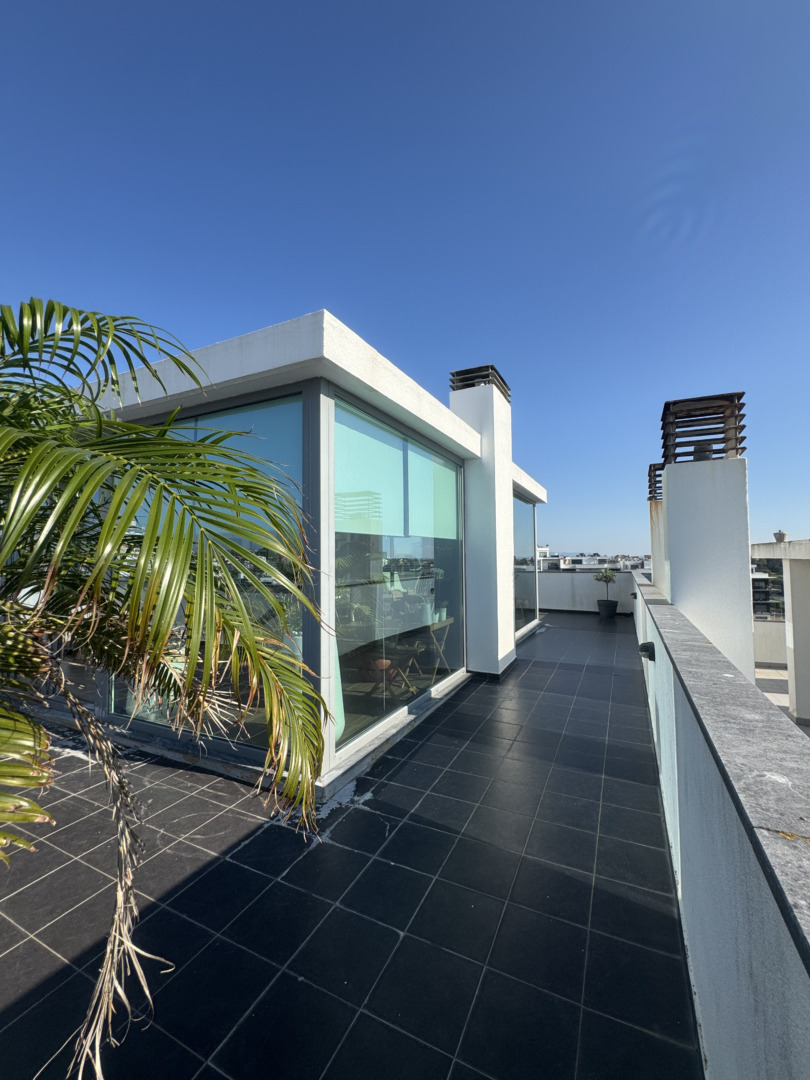
Duplex apartment with sea view 15 minutes from Lisbon
rua Santa Teresa 7Bedroom + duplex apartment with sea view and 15 minutes from Lisbon.
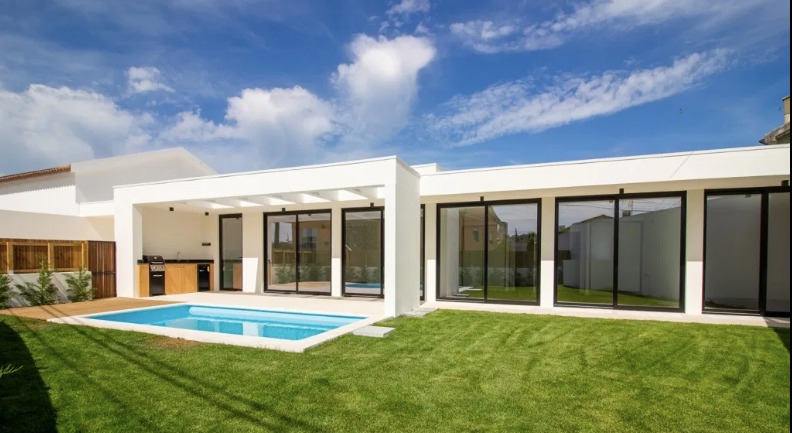
Single-storey house with swimming pool
Just a few meters from the magnificent bay of São Martinho do Porto, lies this…
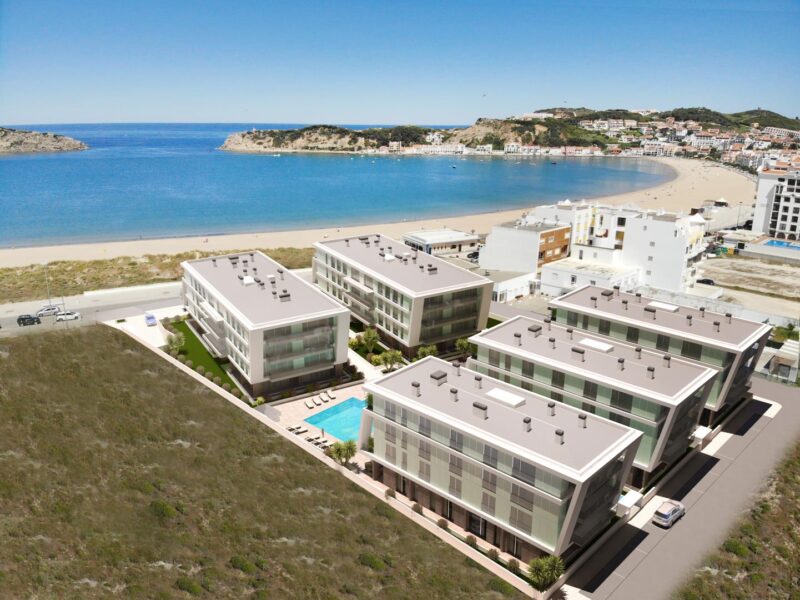
Condominium apartments facing the sea
São Martinho do PortoBeautiful apartments in São Martinho do Porto “Janela da Baía”! Located in the heart of…

Villa already finished and ready to move in: 4-suite bungalow on 750m2 plot in a quiet area of Azeitão
Rua de ParisHouse already finished and ready to move into! Close to shops and services, quick access…

Magnificent house with basement, indoor and outdoor pool in Verdizela/Aroeira
Verdizela/AroeiraNew turnkey project: magnificent single-storey villa, 498m2 in surface area, high-end finishes on a 1875m2…

Luxury apartment on the edge of a nature reserve
Your modern, spacious apartment between the beach and Lisbon’s capital. – Beach 5min – Golf…
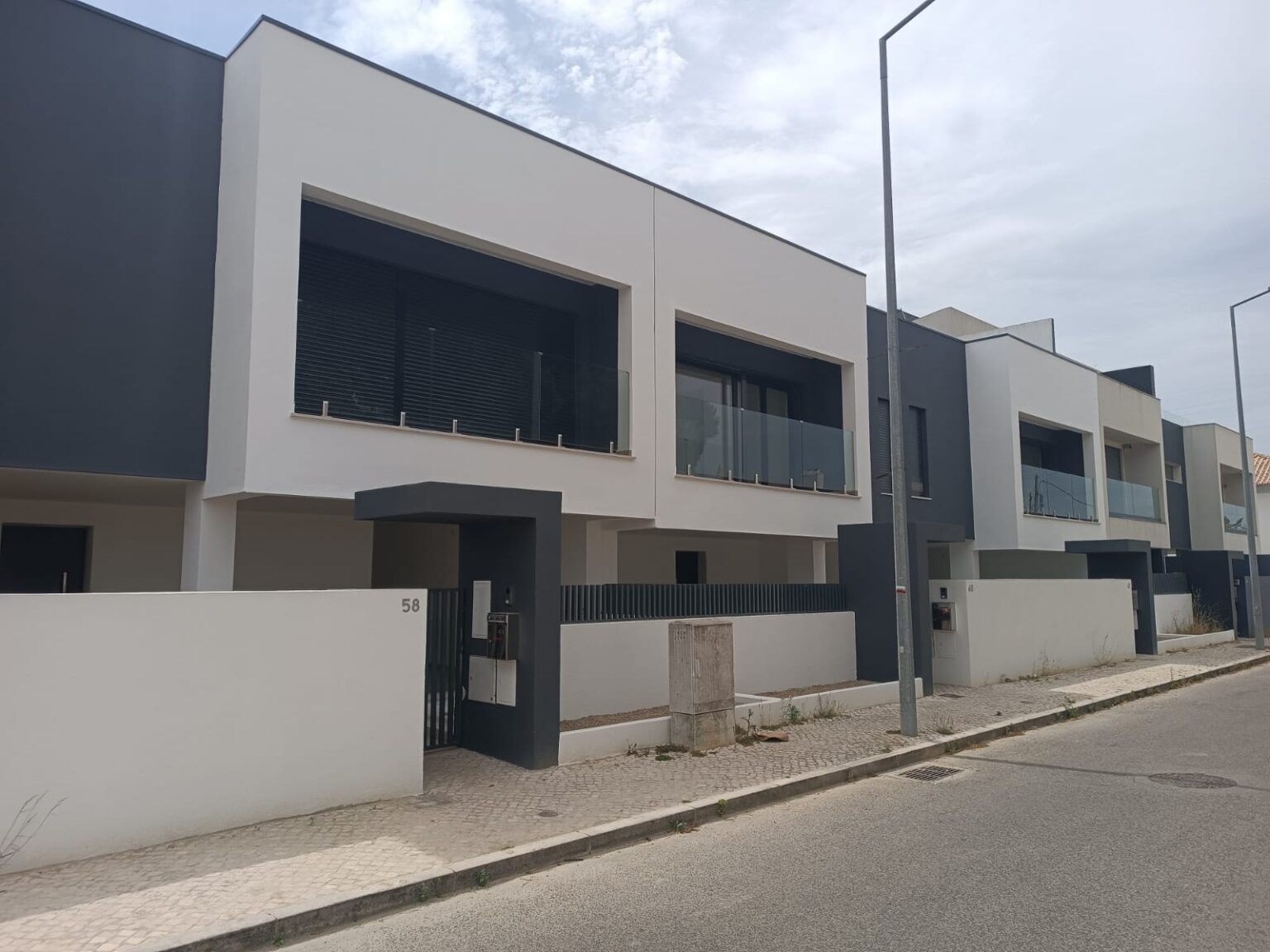
House T3 1 10 min from Lisbon and 5 min from the beaches
PêraREADY TO MOVE IN! New T3 1 ready-to-live-in house in a quiet, rural neighborhood with…

4 bedroom villa with pool and jacuzzi in Aroeira
rua são miguelModern, minimalist architect-designed house with exceptional details in a quiet location in Aroeira 2-storey house…
Inscrivez-vous à notre newsletter
Recevez chaque mois les derniers articles de notre blog "la vie au Portugal" et notre sélection de biens immobiliers à vendre.









